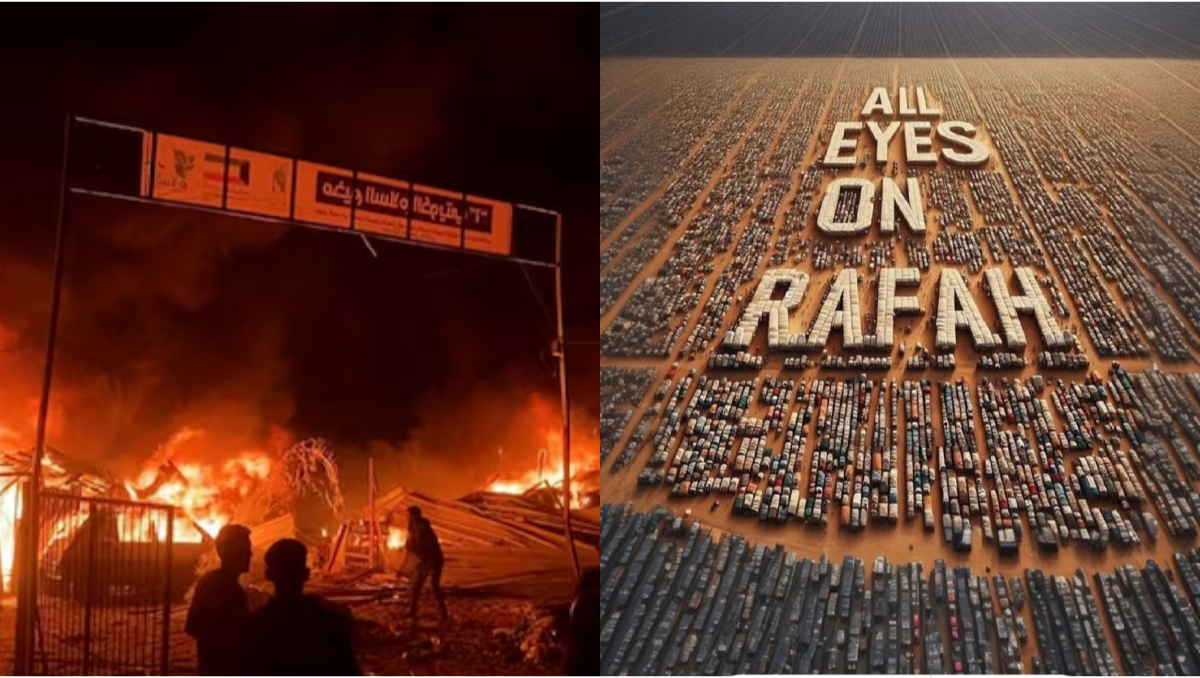Table of Contents
Bollywood’s recent online support campaign for the beleaguered citizens of Rafah has sparked a firestorm of backlash and criticism. Prominent celebrities like Alia Bhatt, Kareena Kapoor, Madhuri Dixit, and Ritika Sajdeh took to social media to vocally condemn Israel’s airstrikes on the Palestinian city, sharing images and messages as part of the “All Eyes on Rafah” campaign. However, this display of outrage over the crisis in Rafah has called into question these Bollywood stars’ apparent indifference to equally serious humanitarian issues much closer to home.
As the #BoycottBollywood hashtag gained traction online, many called out the celebrities for their silence on crises impacting religious minorities and other vulnerable groups within India itself. Their resounding silence on issues like the religious persecution of minority communities and growing instances of love jihad stands in stark contrast to their fervent activism on international fronts and exposes a deeply flawed moral compass.
Flawed Moral Compass of Bollywood Stars
After facing intense trolling and criticism, Madhuri Dixit and Ritika Sajdeh ultimately deleted their Instagram stories about Rafah. Sajdeh in particular was called out for not using her platform to address the plight of Kashmiri Pandits, the Hindu minority violently displaced from the Kashmir valley in the 1990s amid rising Islamic militancy in the region.
Pooja Bhatt, daughter of veteran Bollywood filmmaker Mahesh Bhatt, condemned the backlash against her industry peers, arguing that they should not face repercussions simply for taking a collective stand on the Rafah situation. However, critics have not let up, accusing the film stars of selective activism driven more by personal agenda and societal pressure than genuine humanitarian concern.
The seemingly coordinated nature of the Rafah social media campaign by so many major Bollywood figures raises questions about the ethical limitations and potential for abuse of such online advocacy efforts. While the underlying intention may be noble, the ability to strategically amplify or manufacture outrage through coordinated social media posting opens the door for controversy and manipulation.
Selective activism a norm
This episode has reignited long-simmering debates about the selective nature and inherent constraints of celebrity activism and social media movements. While Bollywood celebrities were quick to rally behind the cause in Rafah, lending their voices to the international narrative, their resounding silence on pressing humanitarian crises unfolding closer to home has drawn scathing criticism. Their apparent blind spot to human rights crises impacting minority groups within India has been interpreted by social media users as evidence of inconsistency and lack of accountability in addressing complex issues.
There could be a variety of factors influencing their prioritisation of certain causes over others – personal interests, ideological leanings, efforts to expand international appeal or avoidance of backlash from wading into complex homeland controversies. Distanced from nuanced domestic issues, they may gravitate towards amplifying higher-profile foreign tragedies highlighted in international media spheres. Even if celebrities cannot reasonably be expected to be social activists for every global crisis, the apparent selectivity of Bollywood’s advocacy invites valid scrutiny.
However, this selective activism is not at all restricted to celebrities. Individuals and groups across societies frequently prioritise advocating for causes that resonate most with their identities and ideologies or are simply most visible in the media they consume. The human capacity for universal activism is inherently limited.
Ultimately, while advocating for universal and equal activism is an admirable ideal, it may be pragmatic to encourage authentic advocacy within the causes that most motivate people. Even selective activism can influence conversations and raise awareness when done with integrity. The real criticism may not be selectivity itself, but rather the perceived lack of nuance, consistency and accountability in highlighting complex humanitarian issues, whether domestic or international.

1 Comment
Pingback: Karisma Kapoor stuns on Magazine Cover Before 50th Birthday: A Captivating Display of Beauty and Sophistication! - INPAC Times